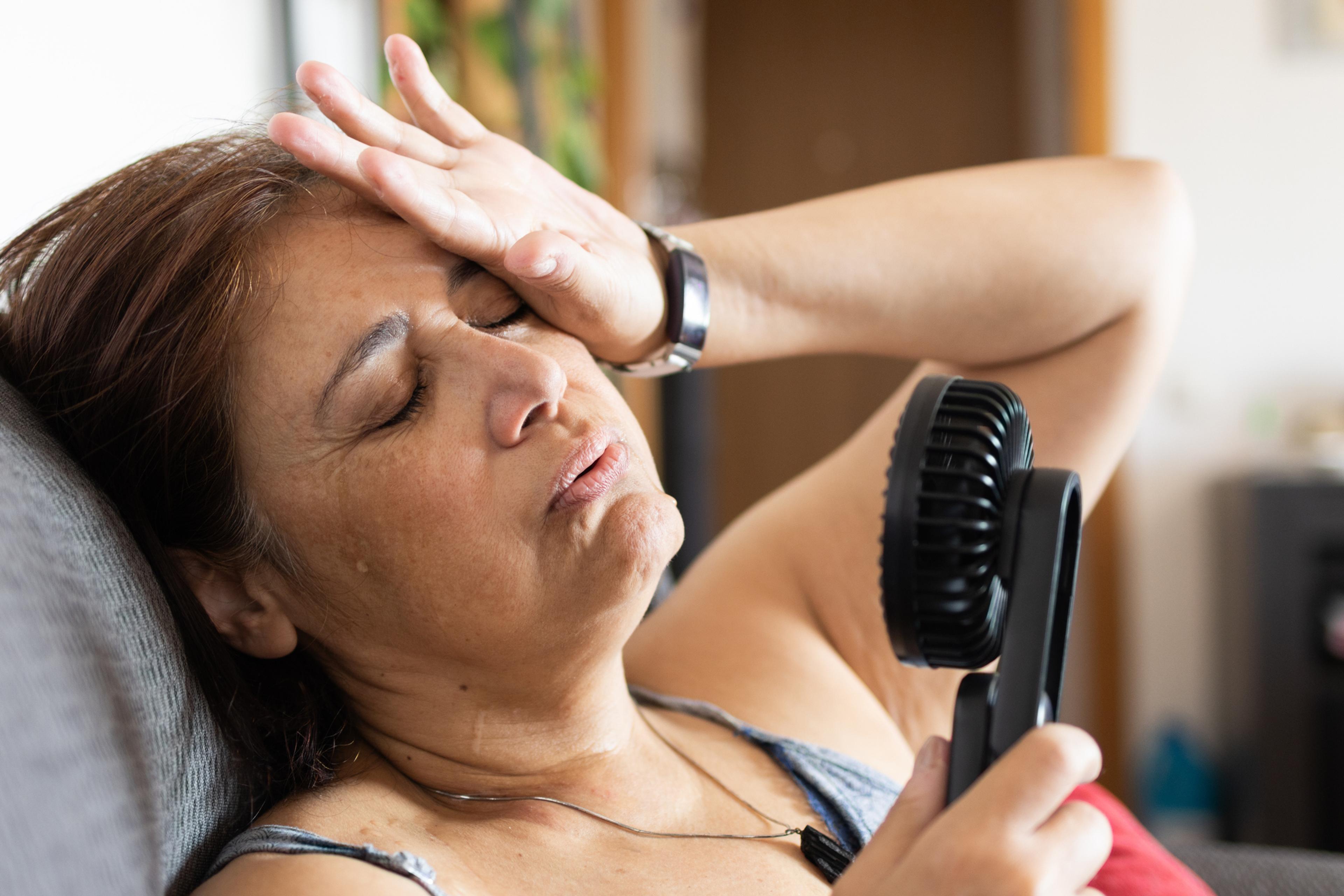Does Warm Weather Affect Mental Health?

Lindsay Knake
| 3 min read
Lindsay Knake is a brand journalist for Blue Cross B...

If you find yourself feeling hot and moody in the summer, it’s not just in your head. Warm weather is linked to stress, irritability, and even aggression.
From minor irritation and grumpiness to more severe cases of depression, high heat can have a harmful impact on our mental health.
How does warm weather affect your mental health?
Heat has a variety of negative impacts on humans, from fatigue and disrupted sleep to higher stress levels.
Temperatures above 70 degrees can both disturb your sleep and make you tired, which has a negative impact on your mood. Like being sick, feeling physically poor can make you feel mentally poor.
Dehydration, more likely in warm months, can impair cognitive performance, research shows.
A 2021 study found higher temperatures, particularly above 79 degrees, caused lower activity in the parasympathetic nervous system, which helps us relax. Heat can raise cortisol levels, which can make you irritated and moodier, according to another study.
For a small percentage of the population, warm weather can trigger depressive episodes or summer onset seasonal affective disorder (SAD). Symptoms of summer onset SAD, according to the National Institute of Mental Health, include:
- Trouble sleeping or insomnia
- Poor appetite, leading to weight loss or gain
- Restlessness increased agitation
- Anxiety
- Violent or aggressive behavior
Some research has found people tend to be more aggressive and anxious in warmer months. Hot days are correlated with an increased risk of emergency room visits for mood and anxiety disorders, dementia, schizophrenia, and substance abuse, according to a different study. Hot weather is also connected to increased suicide risk.
Hot weather and a warming climate are linked to more extreme weather events such as tornadoes and floods, which can cause anxiety and stress.
What can I do to manage mental health in the heat?
Accepting your worsened mood can be a way to manage it. If you experience fairly minor symptoms of irritability and stress, acceptance rather than worrying about it can provide relief. Remember, the heat won’t last indefinitely.
A practice of meditation or mindfulness can help bring you to the present moment rather than focusing on what is making you feel bad.
To cope, you can take steps to keep yourself physically cool with fans, ice packs, or air conditioning.
Tips for general physical and mental well-being include:
- Practice good sleep hygiene.
- Drink plenty of water and eat foods with a high-water content.
- Stay out of the heat during the hottest parts of the day.
- Exercise to improve your mood.
If you’re dealing with serious anxiety or depression, talk to your primary care physician about treatment options such as therapy and medication.
Blue Cross Blue Shield of Michigan and Blue Care Network can help members find an in-network mental health professional by calling behavioral health access lines listed below:
PPO: 1-800-762-2382
Medicare Plus Blue (MAPPO): 1-888-803-4960
HMO: 1-800-482-5982
BCN Advantage (BCNA): 1-800-431-1059
This is a free and confidential resource that’s just a call away when you need immediate support. Connect with a behavioral health clinician if you need help finding a mental health or substance use provider. Behavioral health professionals answer 24/7.
To find behavioral health benefits and resources available through your health plan, log in to your member account at bcbsm.com or our mobile app and visit the Behavioral Health Support page.
Find more resources to support your mental well-being at bcbsm.com/mentalhealth.
Image: Getty Images
Related:





